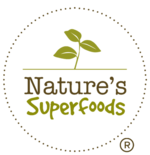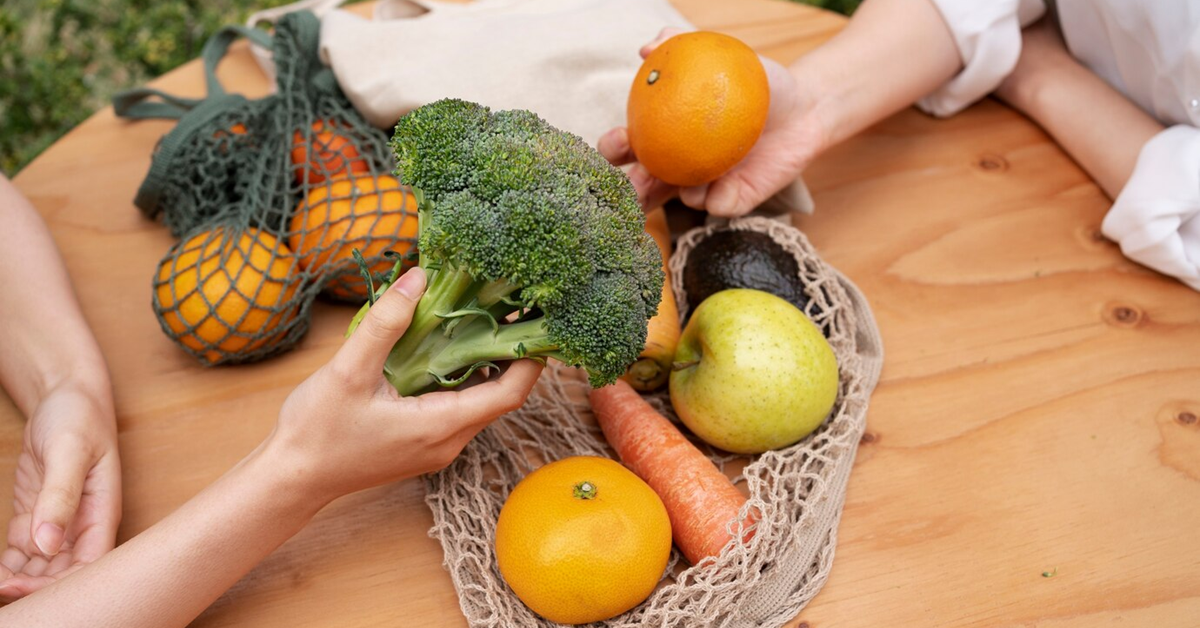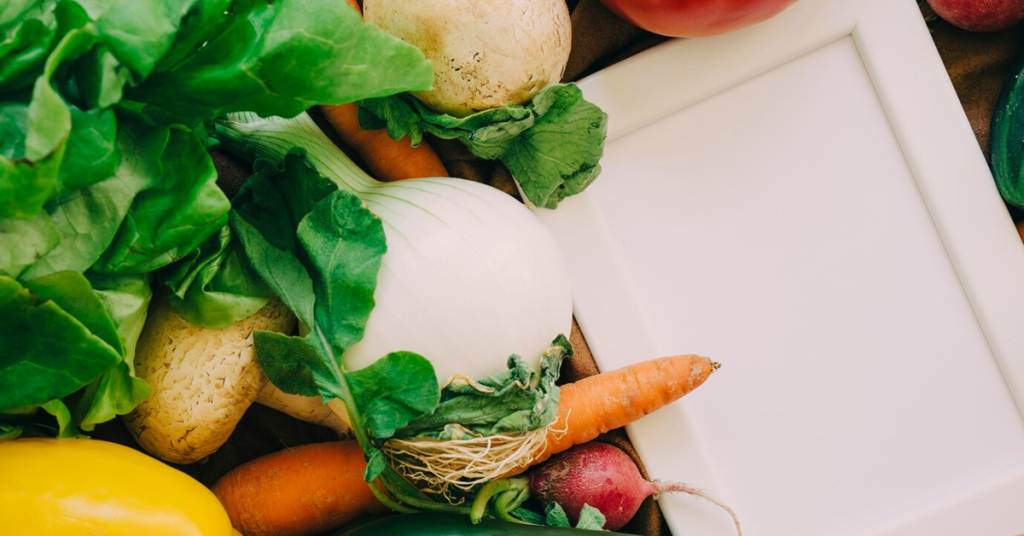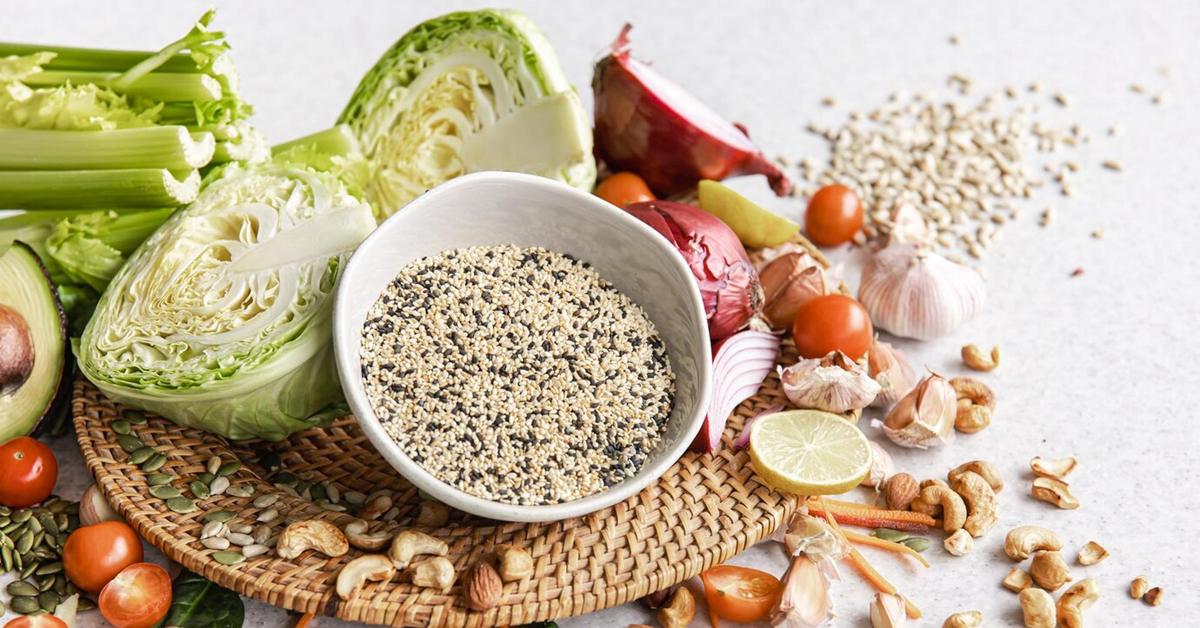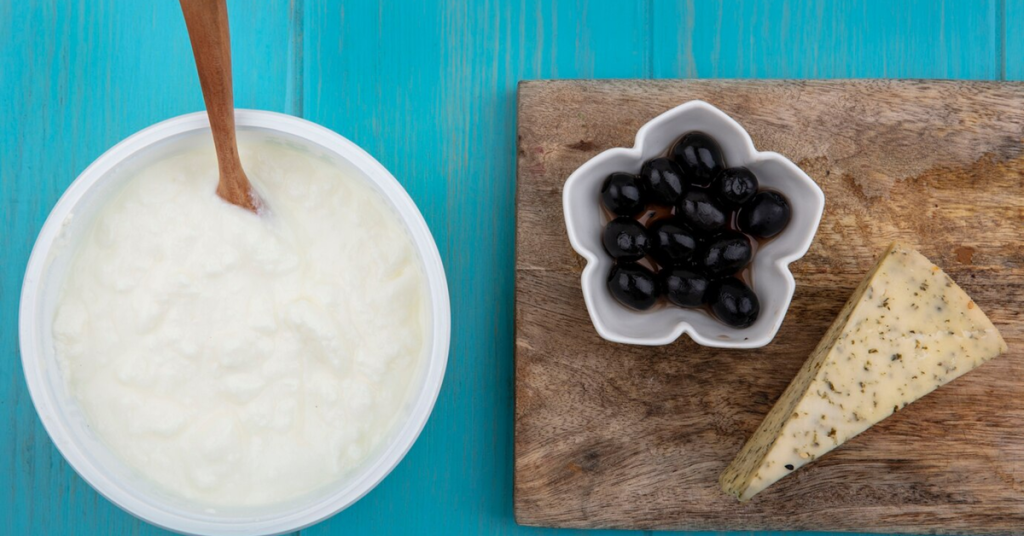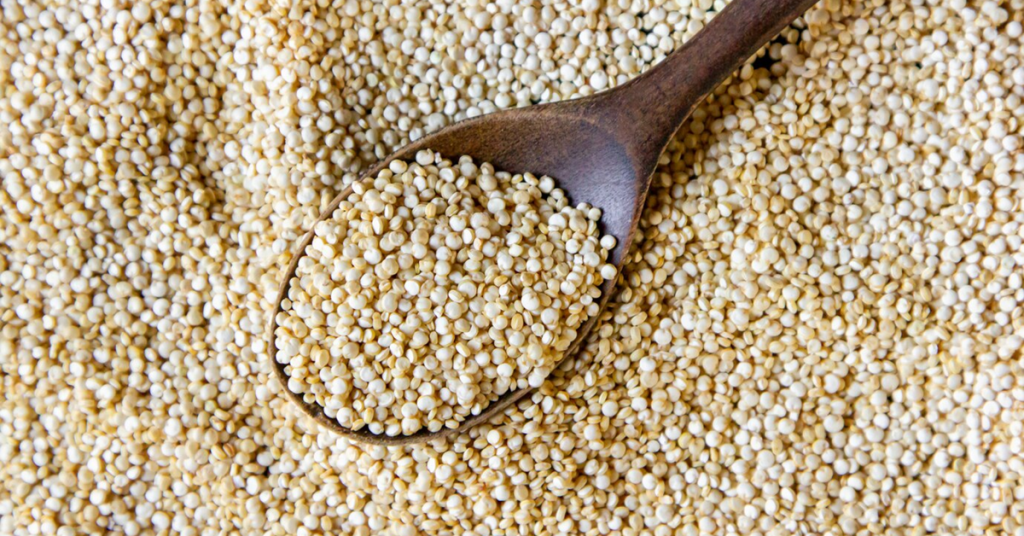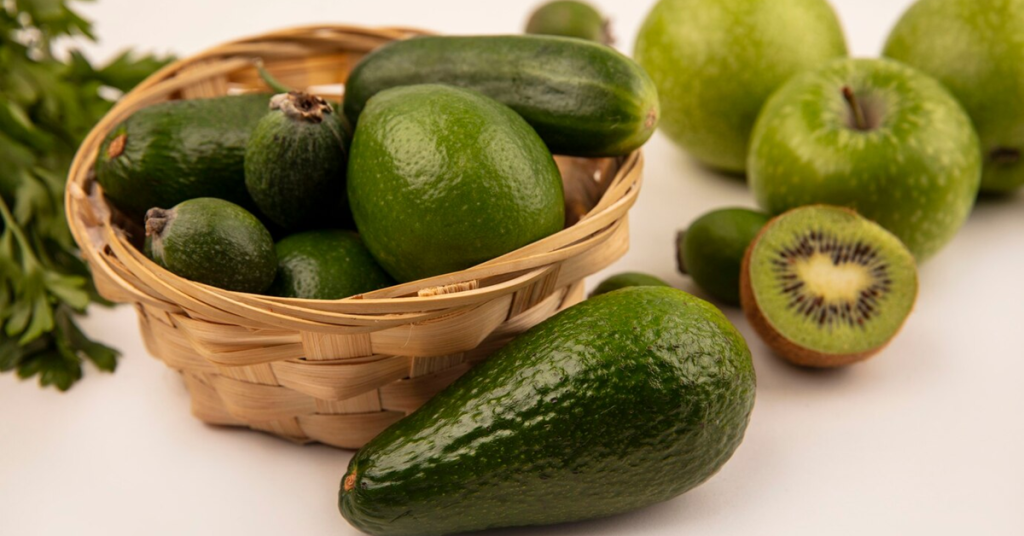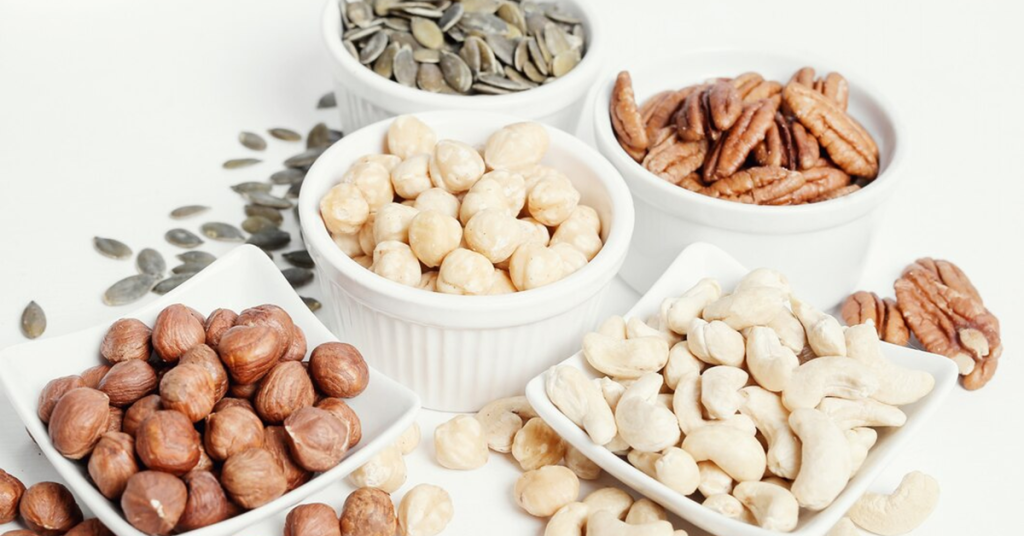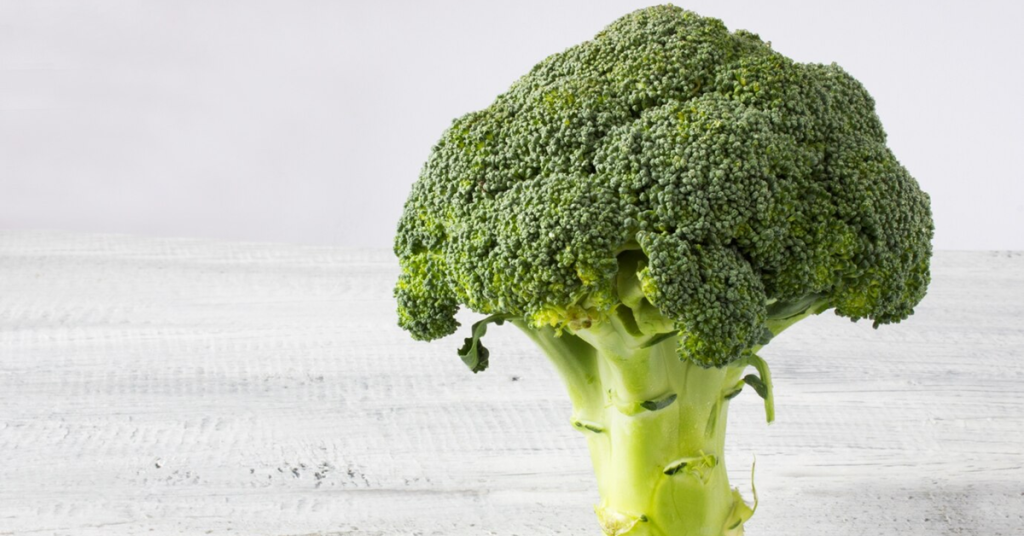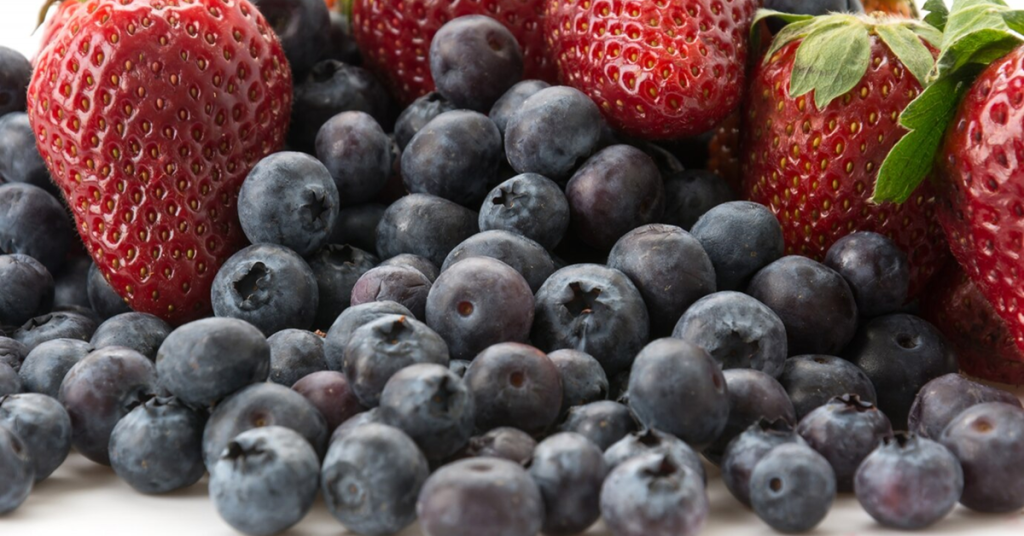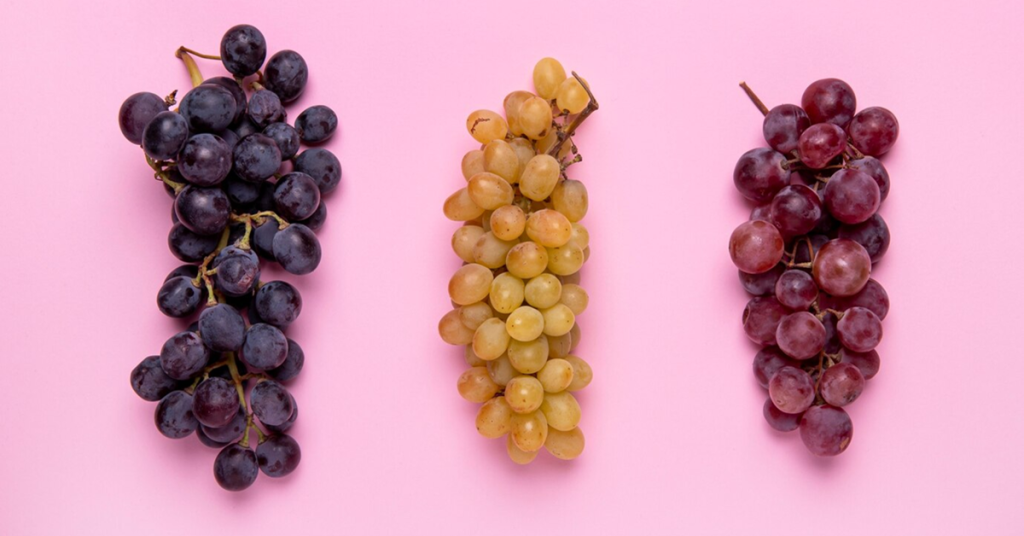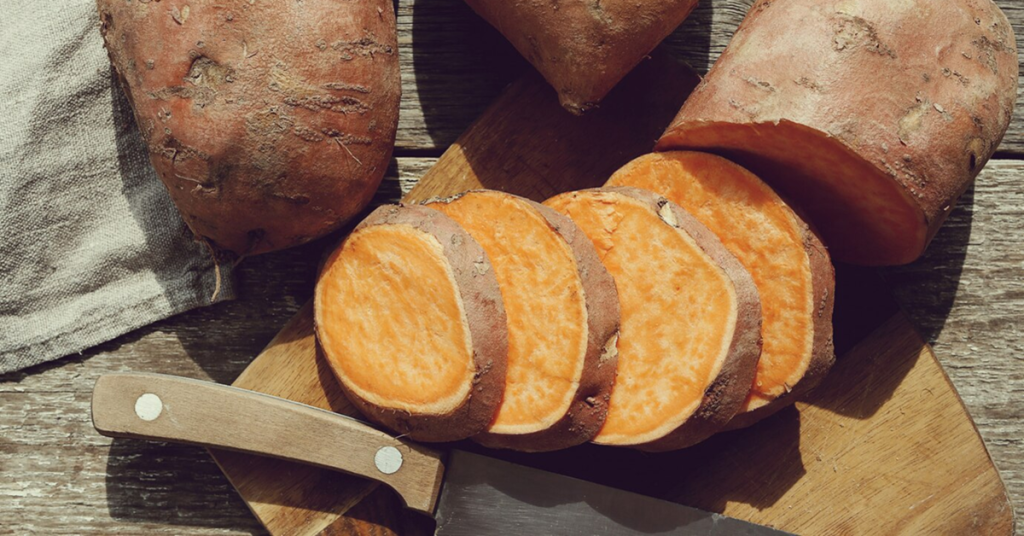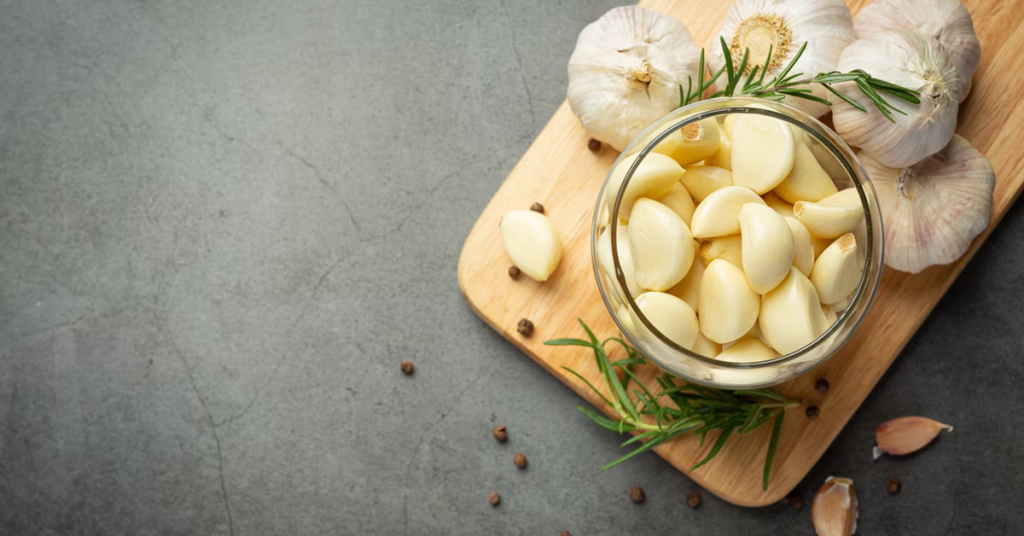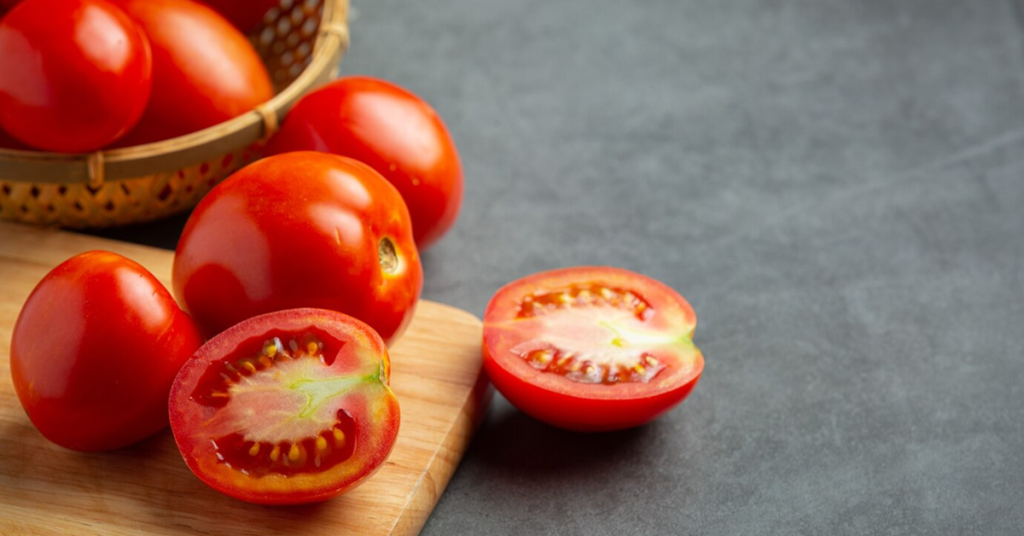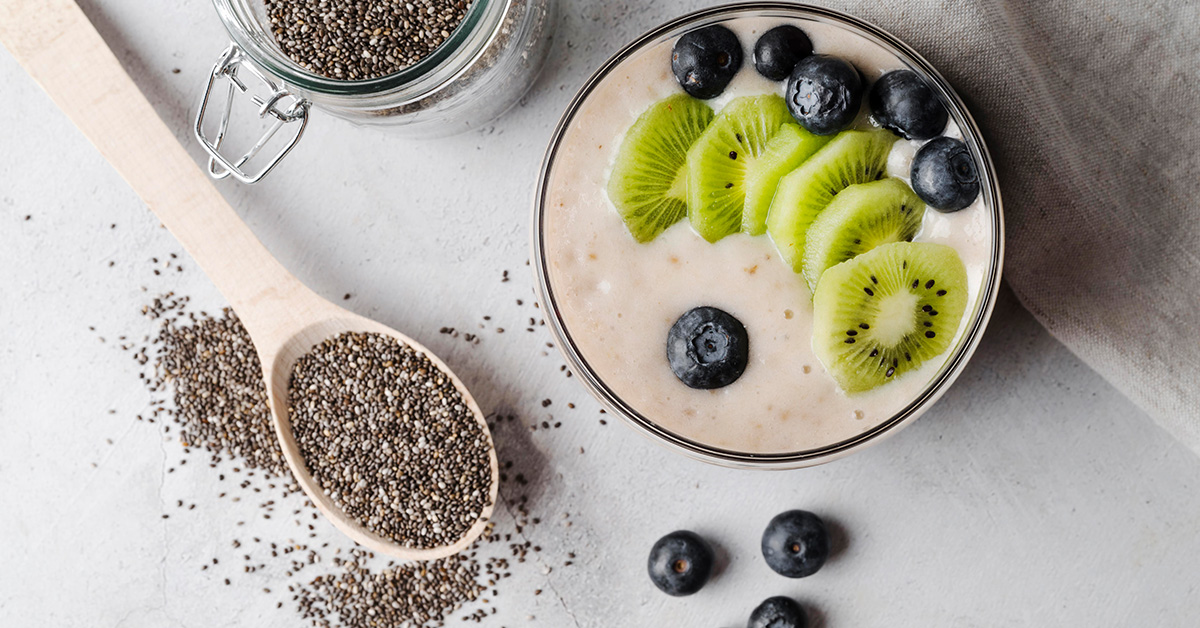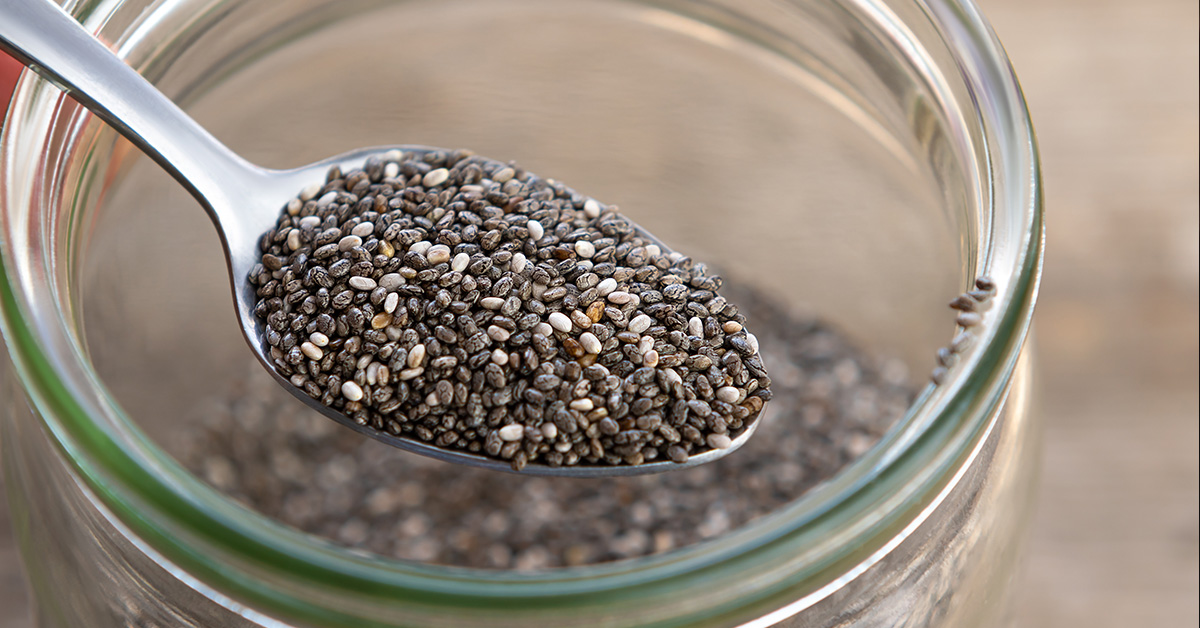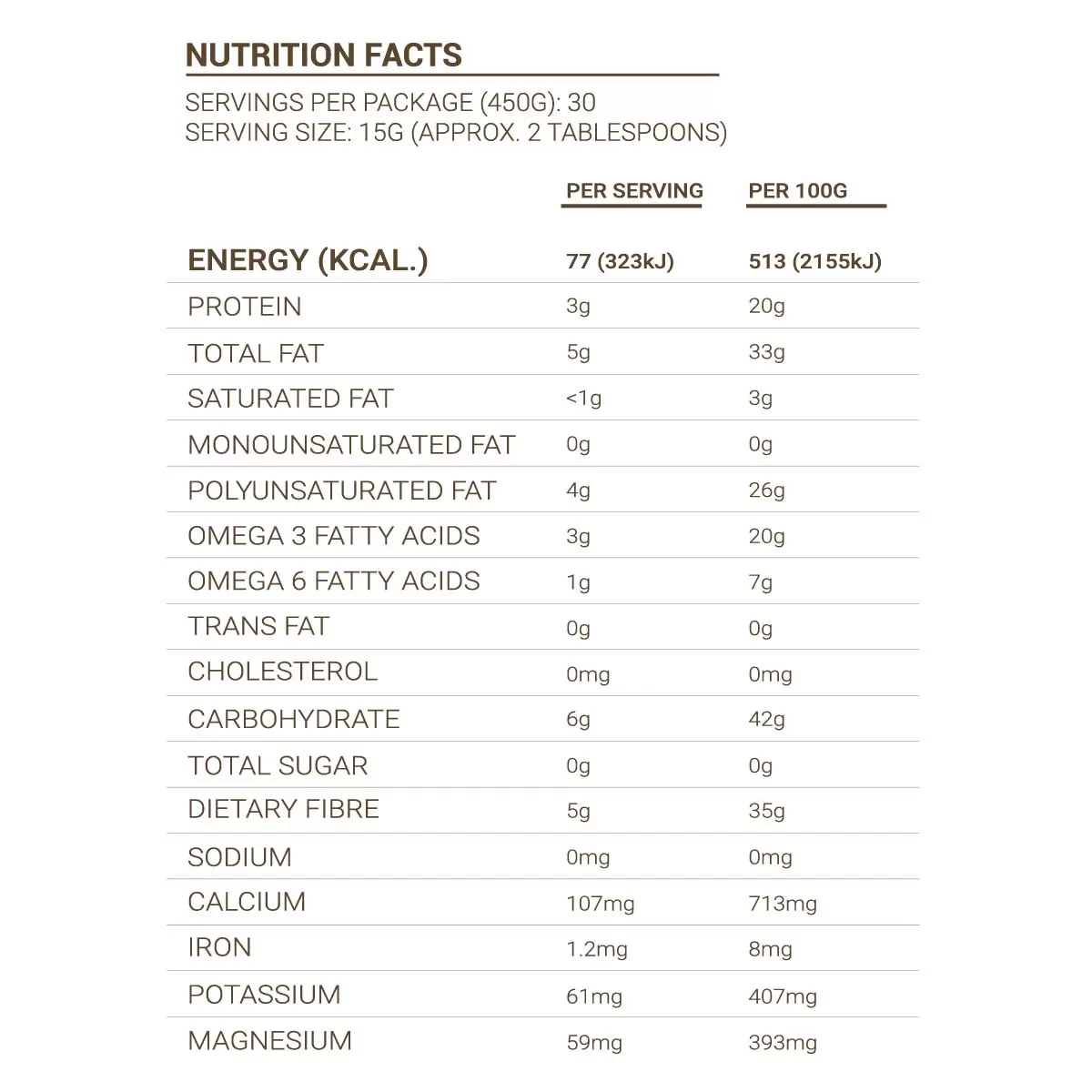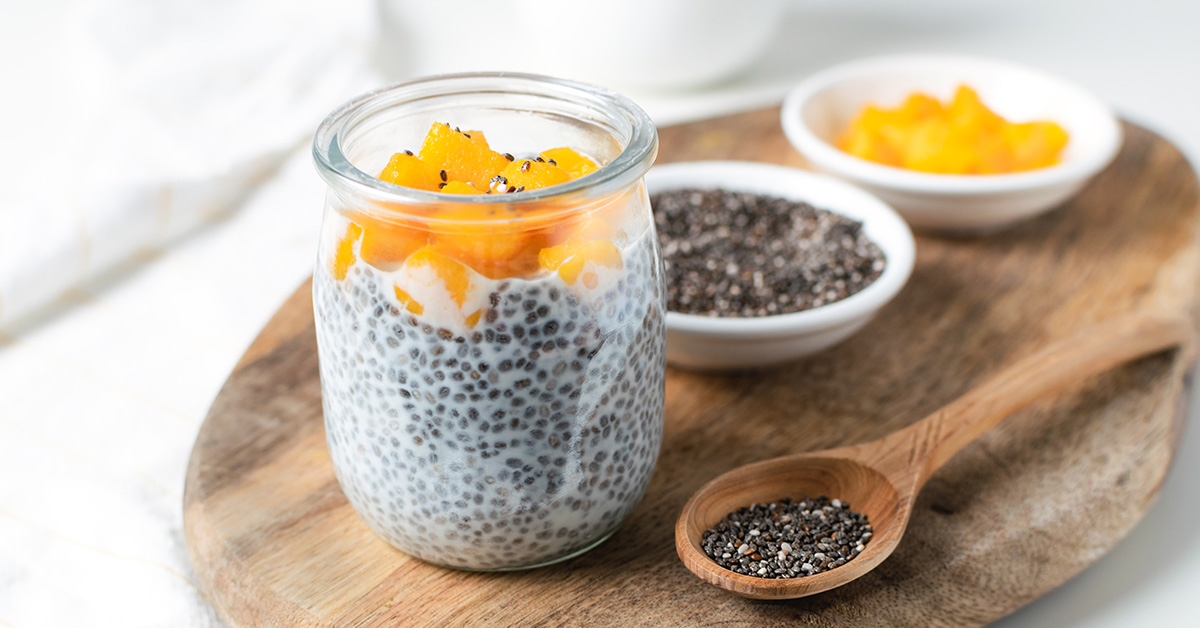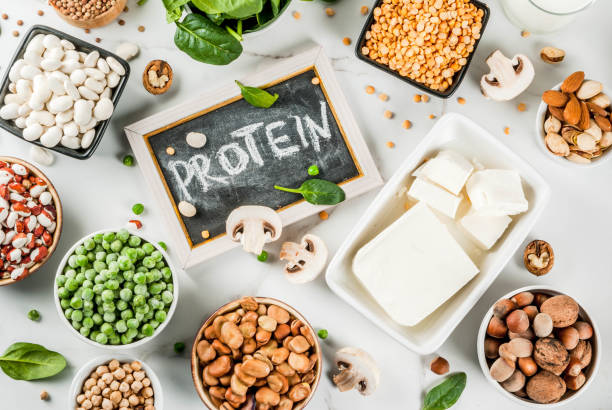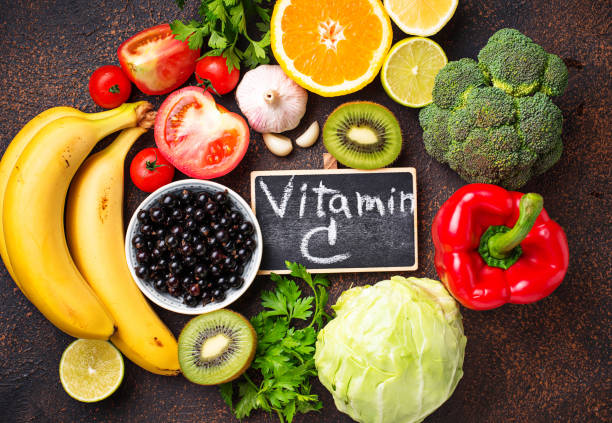-
No products in the cart.
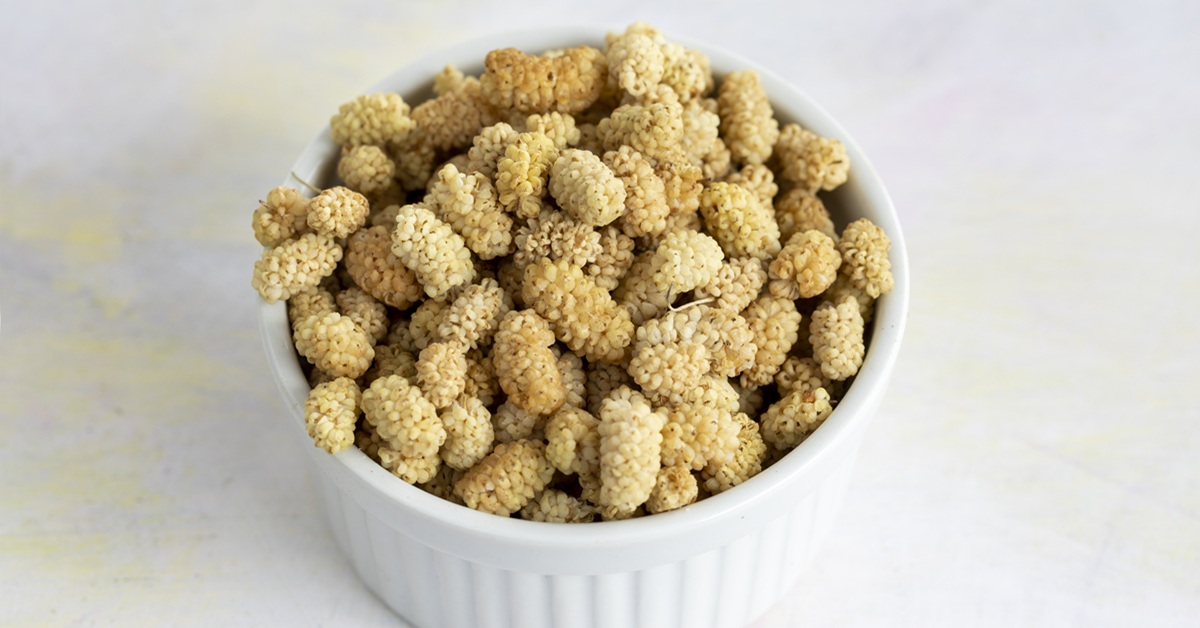
What Are Dried Mulberries And What Are They Good For?

If you are exploring superfoods to add to your daily diet, dried mulberries are a great option to consider. They are rich in essential nutrients, especially iron and fiber, and support overall health through their vitamins, minerals and antioxidants. Dried mulberries are also versatile and can be enjoyed in many different ways. This article explores the benefits of dried mulberries, the different types available, and how you can include them in your everyday meals.
What Are Dried Mulberries
Dried mulberries, the fruit of mulberry trees, are a nutrient-rich superfood that offers a range of health benefits. They are naturally sweet and have been used in traditional Chinese medicine for generations.
In addition to being enjoyed as a snack, dried mulberries can be added to various recipes to enhance sweetness without significantly affecting blood sugar levels. Their versatility makes them a great whole food for making your meals more nutritious.
Dried mulberries are typically processed in one of two ways: sun-dried or machine-dried. Sun-dried mulberries are exposed to natural sunlight, which helps preserve their natural sweetness and nutrients without the need for preservatives like sulphite or additives. Many organic sun-dried mulberries are unsweetened and unsulphured, making them a healthier option compared to conventionally dried fruits.
Types of Dried Mulberries
There are three main types of dried mulberries:
1. White mulberry
White dried mulberries are native to China and Turkey. They are typically sweeter than red or black mulberries and are often used in traditional Chinese medicine for blood health, digestion, and lung health.
2. Red mulberry
Red dried mulberries are native to the eastern United States and are also known as American mulberries. They are slightly tart and are commonly used to make jams or syrups. Red mulberries are valued for their health benefits such as supporting immune function and reducing inflammation.
3. Black mulberry
Black dried mulberries are grown in southwestern Asia. They are usually large, juicy and dark purple to black in colour. Black dried mulberries are rich in antioxidants, with similar health benefits as the white and red mulberries, and are often used in desserts such as pies, jams and tarts.
Nutritional Facts of Dried Mulberries
Dried mulberries are well known for being rich in a variety of essential minerals and vitamins. These include:
- Potassium: This mineral helps lower the risk of heart diseases and supports healthy blood pressure levels..
- Vitamin C: An essential nutrient that boosts the immune system, improves skin health and aids in tissue repair.
- Vitamin E: An antioxidant that protects cells from oxidative damage and supports skin and immune health.
- Iron: This mineral is important for oxygen transport and the production of red blood cells.
- Vitamin K1: A vitamin that supports overall bone health and helps prevent blood clotting.
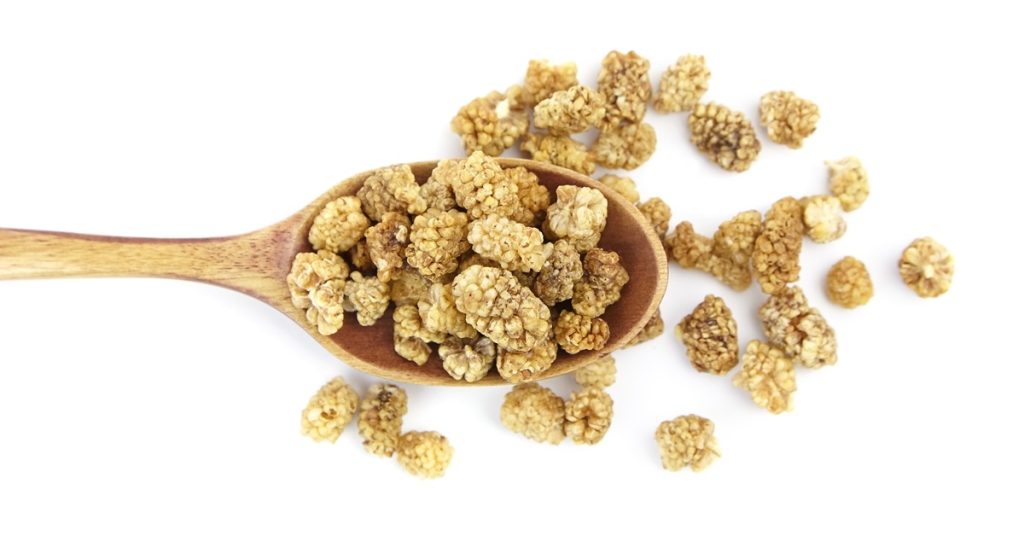
Benefits of Dried Mulberries
Dried mulberries offer numerous benefits that help prevent disease and support long-term health. Some of the key advantages include the following:
1. Improve digestion
Dried mulberries are high in fibre, which supports healthy digestion. Getting enough fiber from whole foods such as mulberries can help prevent constipation and bloating.
2. Boost the immune system
Dried mulberries contain vitamin C, which strengthens the immune system and helps protect the body from illnesses. Eating foods rich in Vitamin C such as mulberries also supports gum health and helps fight off viral infections.
3. Reduce the risk of cancer
Mulberries are rich in antioxidants, which help prevent oxidative damage to tissues and cells. This may reduce the risk of cancer and other chronic diseases.
4. Balance blood sugar levels
Dried mulberries may help people with diabetes by preventing spikes in blood sugar after meals. Their fibre content slows down carbohydrate digestion and supports better blood sugar control.
5. Lower cholesterol levels
Dried mulberries contain anthocyanins and flavonoids, which may help reduce LDL (bad cholesterol) and improve HDL (good cholesterol).
6. Slow aging
Sun-dried mulberries are especially rich in antioxidants, which have anti-inflammatory and anti-aging effects. This makes them a nutritious and beneficial snack.
7. Improve blood health
Mulberries are a good source of iron, which is essential for red blood cell production. They also contain antioxidants that help maintain healthy blood vessels.
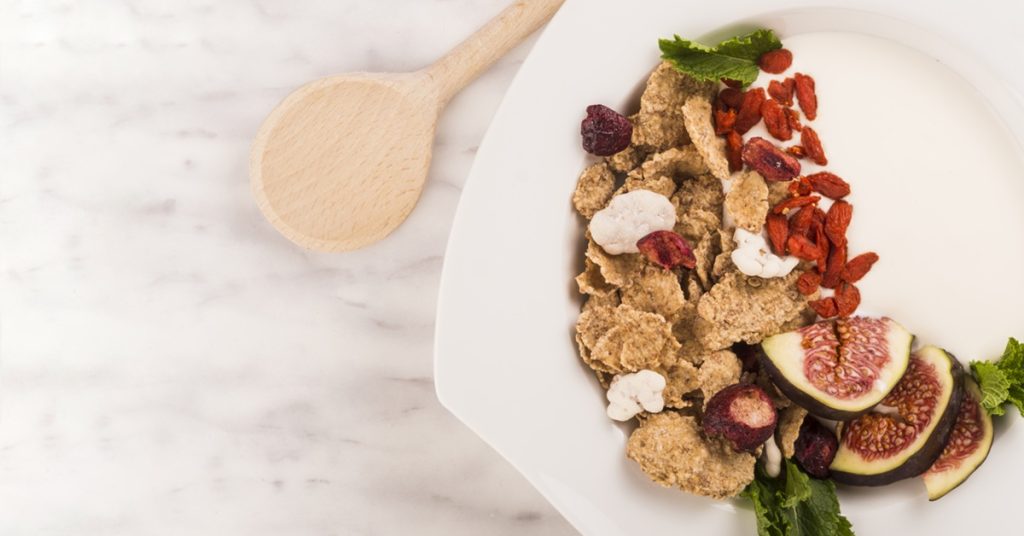
How to Incorporate Dried Mulberries into Your Daily Diet
There are several easy and enjoyable ways to include dried mulberries in your daily meals:
- Enjoy them as a snack
- Add to beverages: Dried mulberries can be blended into smoothies or mixed with fruit juices for added natural sweetness and nutrients especially iron.
- Use as a topping: Sprinkle dried mulberries over salads, oatmeal, quinoa or other meals as a naturally sweet and healthy topping.
- Mix into baked goods: If you enjoy baking, dried mulberries can be added to your recipes to add natural sweetness and boost nutritional value such as fiber.
How Many Dried Mulberries Should You Eat Per Day
A healthy daily intake of dried mulberries is about 40 grams, which equals roughly 25 to 30 berries. While they are highly nutritious and beneficial to the body, it is best not to over-consume them due to their natural sugar content.
Who Should Not Take Dried Mulberries
People who are allergic to mulberries should avoid consuming them to prevent potential allergic reactions. Although dried mulberries are generally suitable for diabetics, they may interact with certain diabetic medications if taken together in large amounts. It is advisable to consume dried mulberries separately from your medication.
Are There Any Side Effects of Consuming Dried Mulberries
Dried mulberries do not typically cause significant side effects. However, individuals with allergies should be cautious. It is always best to consult a healthcare professional to determine whether dried mulberries are safe for you.
Where to Buy Dried Mulberries in Singapore
Dried mulberries can be found in most supermarkets, convenience stores and grocery stores across Singapore. If you prefer shopping online, you can purchase our Organic Sun-Dried White Mulberries from our website, as well as on platforms like Shopee, Lazada, Redmart and FairPrice Online.
Conclusion
Dried mulberries are a valuable addition to a healthy daily diet. Whether eaten as a snack or added to your favourite meals, they offer a wide range of health benefits. From boosting your immune system to slowing the aging process, these nutrient-rich berries are a delicious and natural way to support your wellness journey.
